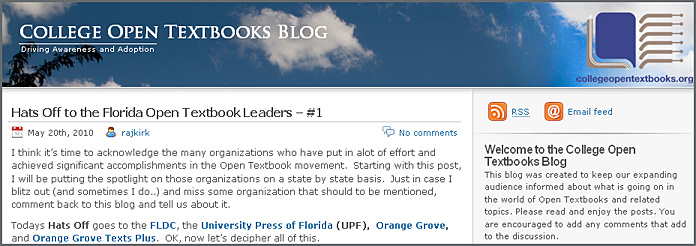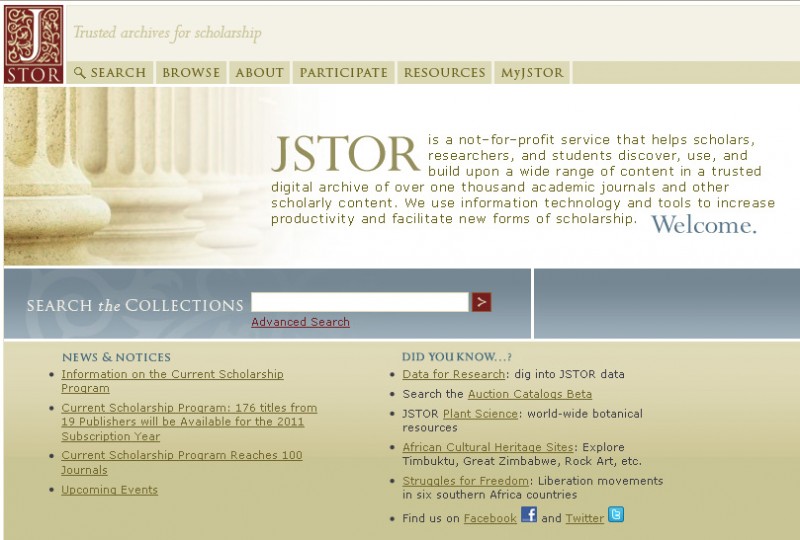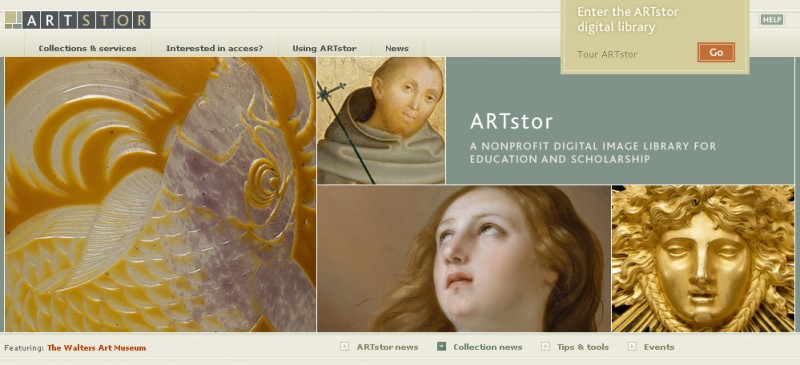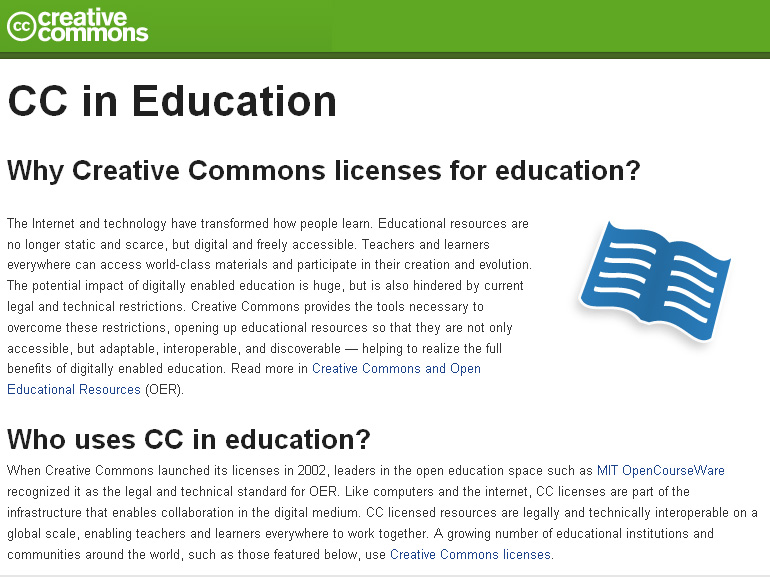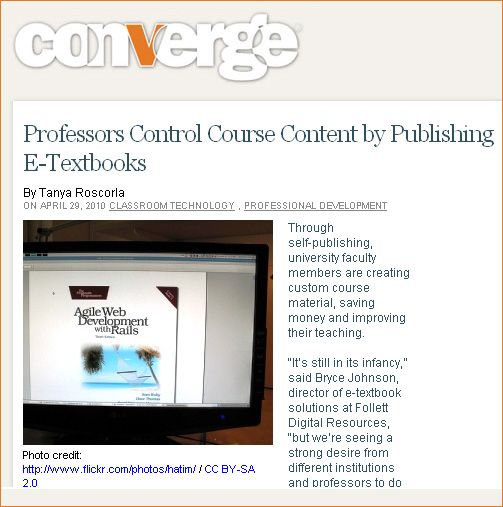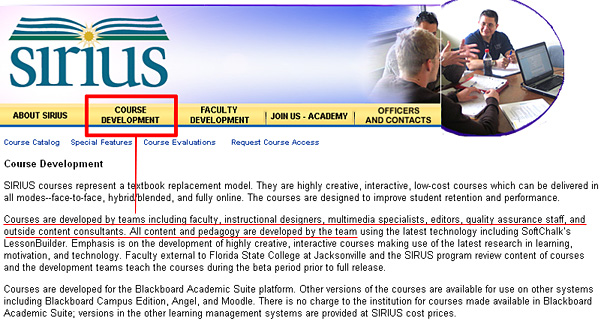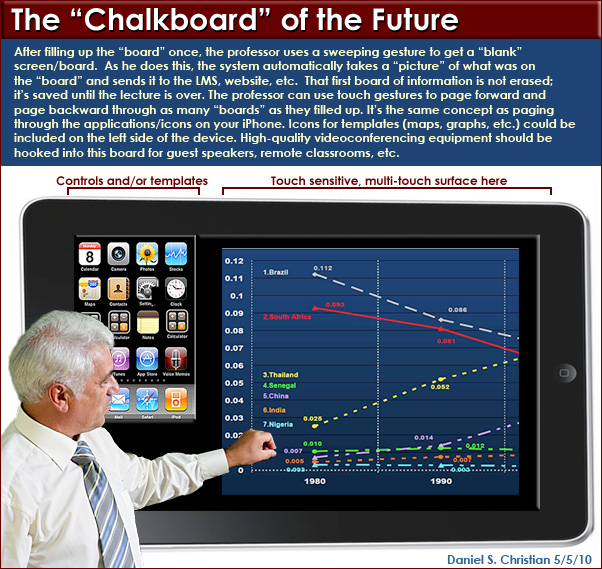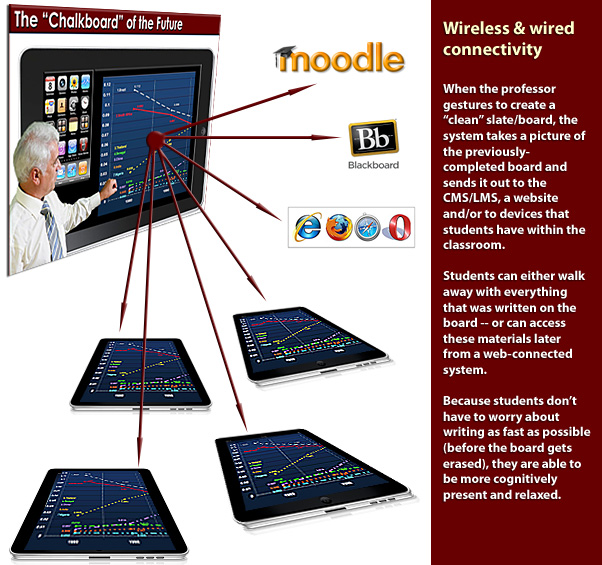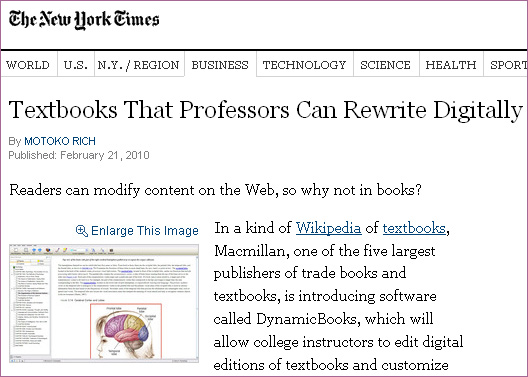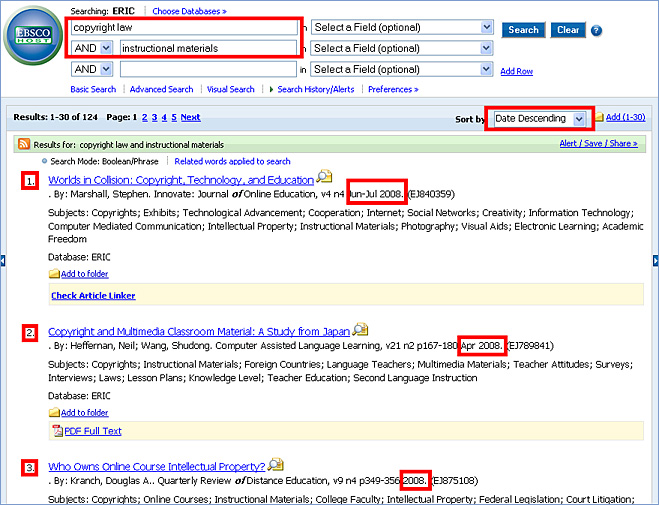
I went to go search the ERIC database just now for articles related to copyright law as it pertains to instructional materials. You know what? The most recent hit I got was from 2008! That’s unbelievable to me. It’s May 2010, and if I can’t get a scholarly article on this from 2010, we’ve got a serious problem with our academic journals. This situation is unacceptable and won’t be where students go if we can’t provide a much more up-to-date experience.
If I were to go to a lawyer about this situation, I sure hope that they would have more up-to-date materials than I currently have access to as a student.
Now I know that I could pick up many scholarly journals and look at articles from March, April, May 2010 at this point. But when did those ideas first get started? When were the articles written? When were they reviewed? When were they sent back for changes? When were they re-submitted? When did they finally make it into “print”? What’s the BEST we can do with printed journals? With online-based journals?
I’ll also grant you that I’m approaching this from somewhat of a tech-perspective — and technology always seems to outpace many other areas. But still…that all the more backs up my point here as we must move towards providing more up-to-date methods of sharing scholarly information.
Along these lines, I don’t want to read a textbook that is prior to 2009 — and ideally 2010 — at this point. In my area of work, I need up-to-date methods, techniques, information, skills.
We need more avenues that are similar to:
- JSTOR
- Artstore
- Creative Commons
Earn more, charge less
He also spends less money publishing them. With his original textbook, he printed 3,000 copies and had to store them, so he didn’t break even for a while. That’s not the case with creating e-textbooks.
“You don’t have to have a bunch of books laying around, you don’t have to have the initial startup costs,” Chamberlain said, “and then you can send that savings on back to the students.”
For the past five years, Florida State College at Jacksonville has been driving down the cost of textbooks for its students through the SIRIUS initiative. SIRIUS brings together between 50 and 75 faculty members to create course material and textbooks for classes they’re qualified to teach, said Chief Operations Officer Jack Chambers. So far, they’ve developed 20 interactive general education courses.
The textbooks cost $60.98 in print, but this fall, they will publish online through CafeScribe at a price of $48 each. Eleven other colleges will use them as well.
Before the courses publish, a team of content specialists, instructional designers, quality assurance staff and multimedia personnel review them, as do expert faculty members outside the college (emphasis DSC).
From DSC:
This is where publishers need to go — at least as part of their delivery of educational content. Bring up a textbook, maneuver to chapter ___, and drag the video from the left side of the screen to the right side. Or drag an entire chapter to the right side of the screen to have that chapter unfold before your eyes — and then select the item you want to focus on. Drag your fingers to enlarge the graphics/graph/photo/table/etc.; when you are done discussing that item, shrink it back down, gesture it to the side, and go to the next item. Have the board take pictures accordingly and send those pictures to multiple sources.
…
Mobile Learning Leaders to Transform Education Through Digital Publishing— from PRNewswire.com
PARIS, CAMBRIDGE, England and ABILENE, Texas, April 12, 2010 /PRNewswire-FirstCall/ — Abilene Christian University, Cambridge University Press and Alcatel-Lucent Bell Labs have embarked on a joint research project whose intent is to set out a new path towards the future of publishing – from creation through distribution – by putting tools that enhance education in the hands of individuals.
This resource is from:
Cooperation and Convergence— from Rethinking Higher Education by Barry Currier
Results from the Kindle DX pilot at Princeton University — from The Cite
7 things you should know about e-readers — Educause
E-readers are portable, low-power, high-resolution devices that display digital versions of written material from books, magazines, newspapers, and other printed sources. They typically use e-ink, a display technology designed to simulate printed paper that offers similar resolution as newsprint and, relative to an LCD screen, eliminates glare and reduces eyestrain. Digital texts can be updated easily and often include advanced features such as annotation, hyperlinking, cross-linking, saved views, interactive quizzes for individual study, analyses, and shared commentary. E-readers are changing the economics of text-based intellectual property, including educational materials, and a move to digital texts would have broad implications both for the traditional campus bookstore and for an institution’s library.
“The modifiable e-book editions will be much cheaper than traditional print textbooks. ‘Psychology,’ for example, which has a list price of $134.29 (available on Barnes & Noble’s Web site for $122.73), will sell for $48.76 in the DynamicBooks version. Macmillan is also offering print-on-demand versions of the customized books, which will be priced closer to traditional textbooks.”
The next wave of digital textbooks – dynamicbooks from Macmillan — from openeducation.net
#uppingyourgame (v0.3) — an educator’s guide to productivity — is now available
I’m delighted to announce that v0.3 of #uppingyourgame: an educator’s guide to productivity is now ready!
Two chapters are now complete – The Philosophy of Productivity as well as Productivity & Motivation. #uppingyourgame is the first book to be published using the OpenBeta publishing model and will be completed over the course of 2010 (emphasis DSC).
Buying into the ideas that this book contains (and will contain) NOW costs £4 (emphasis DSC). You will receive free updates and notifications as each version is published. Buying into the contents means you have access to each subsequent version up to 1.0. If you decide not to purchase now the price will increase as I complete each chapter (and release each version) – up to a maximum of £10 (emphasis DSC).
From DSC:
What caught my eye here was Doug’s model. Look at the comments at the above posting in order to get a flavor for some of the perspectives here…









